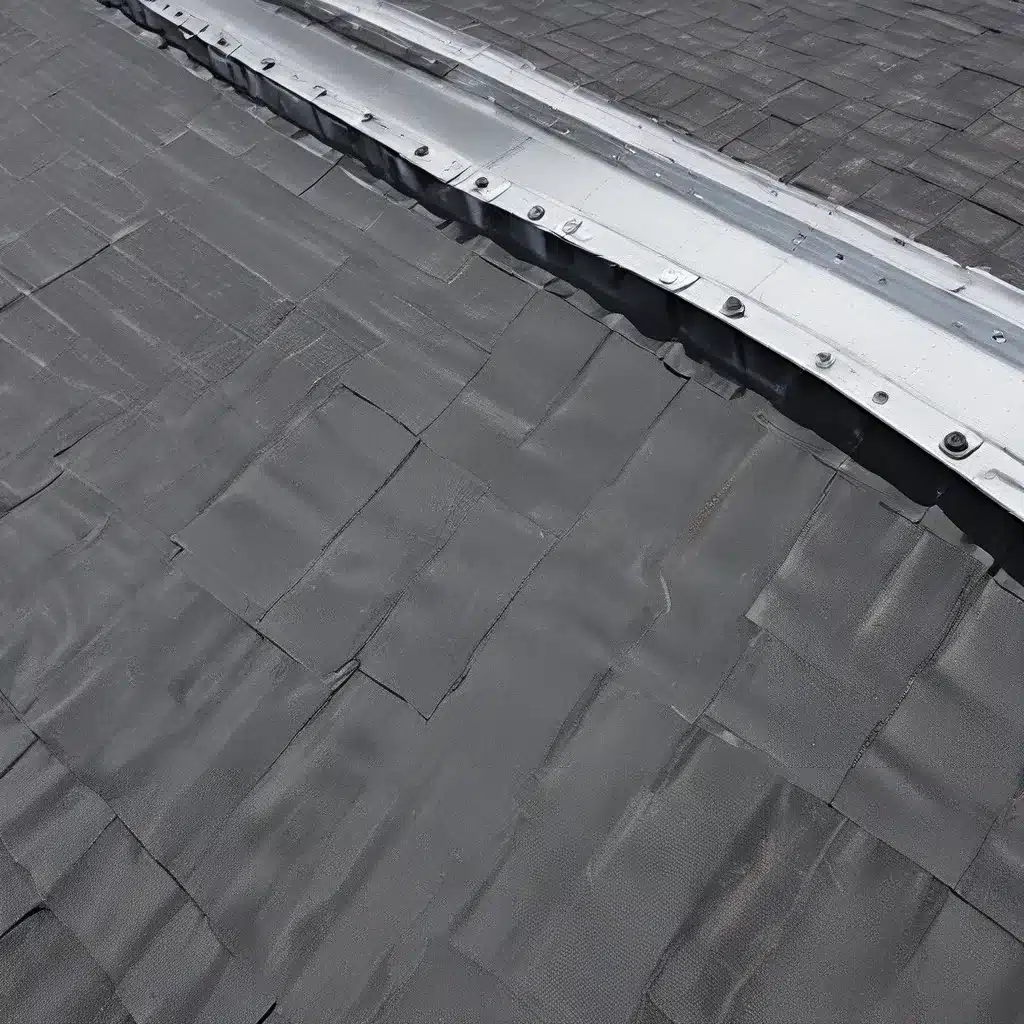
As a savvy commercial property owner, I know that maintaining the integrity of your roof is crucial for safeguarding your valuable assets. Whether you’re managing a bustling office complex, a thriving retail space, or a state-of-the-art manufacturing facility, your roof is the unsung hero that shields your business from the elements and keeps operations running smoothly.
Understanding Commercial Roof Warranties
One of the most important aspects of commercial roofing is understanding the intricacies of your roof warranty. This legal agreement, typically provided by the manufacturer or the roofing contractor, offers a guarantee on the performance and quality of your roofing system. Think of it as a promise that the materials and workmanship used in your roof’s installation will stand the test of time.
Now, here’s the thing – not all commercial roof warranties are created equal. There are two primary types: the manufacturer’s warranty and the contractor’s warranty. The manufacturer’s warranty typically covers defects in the roofing materials and, in some cases, the workmanship as well. These warranties can range from 5 to a whopping 30 years, with the average being around 20 years.
On the other hand, the contractor’s warranty is provided by the roofing installer and focuses on the quality of the installation work. These warranties are generally shorter, ranging from 1 to 5 years, with the average being 2 years.
Understanding the fine print of your commercial roof warranty is crucial. It’s not a one-size-fits-all deal, and the terms, conditions, and coverage can vary significantly based on the roofing materials used and the specifics of the installation. Some warranties may cover everything from material defects to workmanship, while others may have more limited protection.
Maintaining Your Roof’s Warranty
Now, here’s the kicker – to keep your commercial roof warranty in good standing, regular inspections and routine maintenance are an absolute must. These preventative measures aren’t just a good idea; they’re often mandatory warranty conditions. Fail to meet these requirements, and you could end up in a world of hurt, with your warranty potentially voided and leaving you without coverage when you need it most.
I know, I know – it can be tempting to put off those pesky inspections and maintenance tasks, especially when you’ve got a million other priorities vying for your attention. But trust me, it’s a small price to pay to ensure your roof stays in tip-top shape and your warranty remains intact.
Southern Roofing Co. recommends scheduling these inspections with professional roofers on an annual or biannual basis, depending on the terms of your warranty. During these check-ups, they’ll identify any issues that need to be addressed, from debris removal to flashing repairs and sealant application.
Maintaining meticulous records of these inspections and the subsequent maintenance work is also crucial. This documentation serves as your proof of compliance, which can be a lifesaver if you ever need to file a warranty claim.
Navigating Warranty Coverage
When it comes to commercial roof warranties, you’ll typically encounter two main types of coverage: No Dollar Limit (NDL) and Material Only.
The NDL warranty is the cream of the crop, offering the most robust protection. It covers both material defects and workmanship issues, giving you a more comprehensive safety net. However, this elevated level of coverage comes at a higher initial cost.
On the flip side, the Material Only warranty is a more budget-friendly option, but it has its limitations. As the name suggests, it only covers issues with the roofing materials, leaving you on the hook for any installation-related problems. While it may be tempting to go with the lower-cost option, it’s important to weigh the potential long-term expenses that could arise from a more limited warranty.
Now, it’s important to note that even the most comprehensive commercial roof warranty isn’t an all-encompassing safety net. There are always exclusions, such as neglect, unauthorized modifications, and damage from severe weather events. These limitations underscore the importance of diligent maintenance and being prepared for potential out-of-pocket expenses.
Prioritizing Proactive Roof Maintenance
I get it – dealing with roof maintenance can be a real drag, especially when you’re juggling a million other responsibilities as a commercial property owner. But trust me, it’s a task that you can’t afford to neglect. Just like your car needs regular tune-ups to keep it running smoothly, your roof requires consistent TLC to maintain its peak performance.
Ideal Building Solutions recognizes the importance of proactive roof maintenance, which is why they’ve developed their Ideal Maintenance Membership plan. This comprehensive program includes scheduled inspections, preventative maintenance, and on-demand repairs – all designed to keep your commercial roof in top shape and your warranty firmly intact.
The benefits of this membership extend far beyond just preserving your warranty. Regular maintenance can also enhance your roof’s energy efficiency, improve the safety of your employees, and ensure the long-term predictability and longevity of your investment. It’s a win-win-win situation, if you ask me.
Conclusion: Safeguarding Your Roofing Investment
At the end of the day, your commercial roof is a strategic asset that requires a strategic approach to maintenance and protection. By understanding the nuances of commercial roof warranties, staying on top of your inspection and upkeep responsibilities, and considering proactive maintenance programs, you can safeguard your property and your bottom line.
Sure, it may require a bit more effort upfront, but trust me, it’s a small price to pay to avoid the headaches and financial pitfalls that can come from neglecting your roof. So, what are you waiting for? Let’s get to work and ensure your commercial roofing investment stands the test of time!